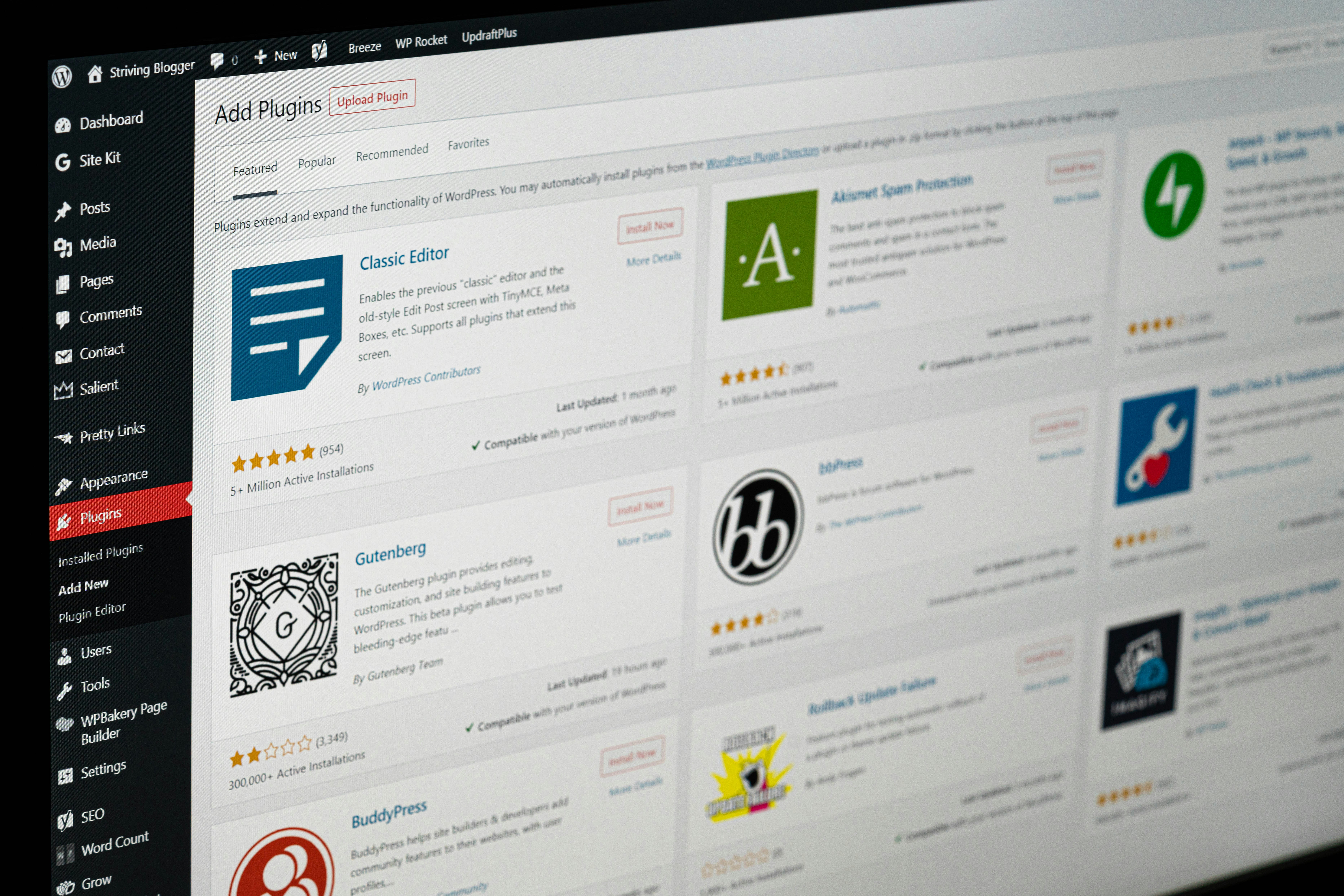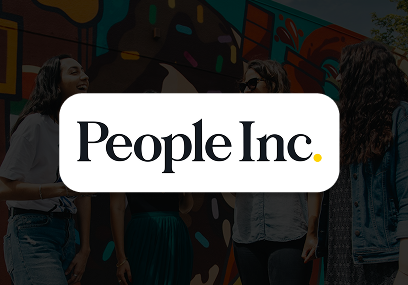.inc domains Flash Sale! Use INC50 at checkout.
Top Website Builders for Startups and Small Businesses in 2025

If you want to make it in the digital space today in 2025, your website is everything. It can’t just be a placeholder; it needs to be a powerhouse that is fast and smart.
The good news is you don’t have to hire pricey custom developers anymore. Awesome all-in-one platforms mean anyone can build a great site with e-commerce marketing and SEO tools built right in.
This detailed guide gives you a real opinion on the best website builders out there. We look at the actual cost, how much you can grow, and what marketing features are included, especially the new AI smart tools. This is all to help you pick the perfect digital home for your business to start and keep growing for years.
The Crucial Criteria for Startups and Small Businesses
Before looking at the reviews for each platform, it's important to know what makes a website builder truly useful for a new or growing business. Choosing a platform that does well in these five areas is the most important thing you can do to make sure your investment pays off.
1. Scalability: Beyond the MVP
A platform must seamlessly evolve with your business. While a simple informational site might suffice initially (a minimum viable product, or MVP), you must plan for future needs. Can it handle:
- Integrating a full e-commerce system with hundreds of products?
- Supporting a substantial content marketing strategy (blogging)?
- Managing a large volume of user accounts, bookings, or community forums?
- Allowing for advanced customization via code when required?
2. SEO Performance and Features
You absolutely need to show up when people search for you, but Google keeps raising the bar for quality and mobile experience, so being visible is tough. The good news is the best website builders today come loaded with awesome SEO tools built right in so you don’t have to stress about the technical stuff. These platforms handle all the difficult background work for you, making sure your site is fast and clean and they include great features to help you rank, such as
- You can easily customize your page titles and web addresses.
- The system walks you through an automated SEO checklist.
- Your site loads at a lightning-fast speed, a key ranking factor.
- It uses clean code that looks perfect on any phone or tablet.
3. Integrated Marketing and CRM Tools
The best platforms go from being simple site builders to full-fledged business hubs. Look for features that work together smoothly and are built in, such as:
- Email marketing and lead capture forms.
- Customer Relationship Management (CRM) for managing leads.
- Social media scheduling and ad campaign management.
- Integrated analytics dashboards.
4. How easy it is to use vs. how much you can change it
A startup website builder needs to find a middle ground. It needs to be easy for a business owner who doesn't know how to code to use on their own but strong enough to make a unique, professional design. AI-powered builders have made it much easier to find this balance. They give you smart, guided design help without forcing you to use rigid templates.
5. Total Cost of Ownership (TCO)
A "free plan" might sound good, but the TCO needs to include things like hosting, a custom domain, SSL certificates, the e-commerce features you require, and transaction fees. A little more money each month for an all-inclusive plan often proves cheaper and more efficient than managing separate services.

The Top Seven Website Builders for 2025
Based on our meticulous analysis of raw performance, killer features, and a truly future-forward design philosophy, these seven platforms are absolutely leading the market. We think you'll find the perfect match here.
1. Wix: The Versatile All-In-One Solution
Wix has cemented its position as the market leader for good reason. It balances extreme ease of use, thanks to its intuitive, drag-and-drop editor, with a powerful, deep feature set.
- Expertise (E): Wix excels in providing tools for non-technical founders to act as their own developers and designers. Its expertise is in demystifying the web-building process.
- Key 2025 Feature: AI Website Creator (Wix ADI 3.0): The latest iteration allows for conversational site briefs, generating not just a template but a complete, content-populated website with a business-specific layout, dramatically cutting launch time for startup website builders.
- While older iterations sometimes faced criticism, the modern Wix platform boasts high optimization. It offers a personalized SEO checklist and an app market to add advanced functionality (like bookings, payments, and sophisticated analytics) without needing to switch platforms.
2. Shopify: The E-Commerce Powerhouse
Shopify is more than just a website builder for small businesses, especially if your primary focus is on selling physical or digital products. It is a comprehensive retail operating system.
- Authority (A): Shopify's authority is unmatched in the e-commerce space. Its secure checkout, integrated payment processing (Shopify Payments), and robust inventory management are industry standards.
- Key 2025 Feature: Integrated Logistics: Shopify continues to deepen its integrations with shipping, fulfillment, and multi-channel sales (social media, marketplaces), simplifying the logistics for rapidly scaling businesses.
- Scalability: The platform is built to handle explosive growth, from a few products on the $5 Shopify Starter plan to enterprise-level volume. We can add any niche e-commerce function thanks to the extensive App Store.
3. Squarespace: Aesthetics Meets Simplicity
Squarespace is the go-to platform for visually driven brands. Artists, photographers, consultants, and service-based businesses that value a premium, clean aesthetic.
- Design & Quality (Q): Squarespace provides the highest quality, most polished templates on the market. They are inherently mobile-responsive and optimized for modern web standards.
- Key 2025 Feature: Enhanced Bookings and Memberships Recognizing its strength with service providers, Squarespace has made its native scheduling, calendar management, and paid member-gating features industry-leading, making it a stellar choice for any service-based startup website builder.
4. WordPress.org (Self-Hosted): The Ultimate Flexible Engine
This is the self-hosted Content Management System (CMS), distinct from the simplified WordPress.com builder. While it requires a bit more initial setup (hosting and domain), its power and flexibility are unparalleled.
- Trustworthiness (T): As the backbone of over 40% of the internet, WordPress.org is the most trusted and battle-tested CMS globally.
- Scalability & Control: It offers infinite scalability via its vast ecosystem of plugins (like WooCommerce for e-commerce or Yoast for advanced SEO). No functionality is truly locked away, providing absolute ownership over your data and platform. A critical factor for high-growth startups planning complex functionality.
5. Hostinger Website Builder: The Budget and Speed Champion
Hostinger's AI-powered builder is an outstanding new contender in the 2025 market for small businesses that need to launch quickly and are on a strict budget.
- Key 2025 Feature: AI-Driven Speed: Hostinger has focused heavily on site speed and a minimalist AI builder that can generate a site rapidly with excellent performance metrics, making it one of the cheapest website builders in 2025.
- Ease of Use: The interface is simple and straightforward and uses a block-based editor, allowing for quick creation without the complexity of a full drag-and-drop system.
Specialized Platforms for Marketing and Advanced Design
Not every startup fits the standard e-commerce or content model. Two builders serve specific, high-leverage needs that are increasingly important in the 2025 landscape.
6. HubSpot CMS: The Integrated Marketing Ecosystem
For businesses that rely heavily on inbound marketing, lead capture, and converting visitors into tracked leads, the HubSpot CMS is a critical tool. It is unique in that the website builder is built directly into a world-class Customer Relationship Management (CRM) platform.
- Expertise (E) & Authority (A): HubSpot’s authority lies in its focus on the entire customer journey, not just the website's front-end. It’s ideal for service-based startup website builders and B2B companies.
- Key 2025 Feature: True CRM Integration: The CRM automatically logs every contact form submission, live chat interaction, and customer visit. This allows for hyper-personalized website experiences and advanced marketing automation right out of the box, with no complex integrations required.
- Scalability: As your marketing team and budget grow, you can easily upgrade your HubSpot plan to unlock more sophisticated automation, lead scoring, and campaign tools. All operating seamlessly with your core website.
7. Webflow: Where Design and Code Converge
Webflow is the perfect choice for the startup that needs a custom, high-fidelity design but wants to avoid traditional coding costs and development bottlenecks. Design-conscious companies and agencies often favor it.
- Quality (Q): Webflow provides precise, pixel-perfect design control. It functions as a visual development tool, translating your design decisions directly into clean, semantic HTML, CSS, and JavaScript.
- Key Feature for 2025: Advanced Interactions and CMS Webflow's native CMS allows designers to structure dynamic content without writing a line of database code, and its advanced interaction panel enables complex animations that help a site stand out from template-based competitors.
- The Learning Curve: It is important to note that Webflow has a significantly steeper learning curve than Wix or Squarespace. It is less of a website builder for small business DIY tools and more of a professional design platform, but the results in speed and customizability are often worth the effort.
V. Selecting Your Strategic Digital Partner: A Final Assessment
The choice among the top website builders ultimately depends on your primary business function. To conclude this authoritative review, here is a breakdown of the strategic decision points:
- If E-Commerce Is Your Core Business (Selling Products): Shopify is the clear and unassailable choice. Shopify focuses entirely on maximizing sales and minimizing logistical headaches through its infrastructure, tools, and scalability.
- If ease of use and a beautiful, quick site are paramount (service/portfolio): Wix or Squarespace. Choose Wix for maximum flexibility and app integration; choose Squarespace if a stunning, minimalist template is your highest priority.
- If Content Marketing and Ultimate Future Control are Key (Advanced SEO): WordPress.org (Self-Hosted). It requires more technical acumen or a developer, but it provides the unthrottled control necessary for top-tier, long-term SEO dominance and complex custom functionality.
- If Lead Generation and CRM are Your Top Metrics (B2B/Consulting): HubSpot CMS. The value of having your website, marketing, and sales funnels integrated from day one far outweighs any other consideration.
- If Budget and Speed Are the Only Constraints: Hostinger. Its low-cost plans and AI assistant provide the fastest possible path to a respectable, performance-focused online presence.
The 2025 digital environment blurs the boundaries between a simple website and a complex business system. By selecting a platform based on your strategic needs, not just its monthly price, you are making a long-term investment that adheres to the highest standards of quality, expertise, and performance that search engines like Google look for. This commitment to a robust, scalable digital foundation will be the key differentiator in your future success.
Frequently Asked Questions (FAQ)
Q1: Which website builder is truly the best for SEO in 2025?
A: While all the best website builders of 2025 offer essential SEO features, WordPress.org (self-hosted) provides the most granular control, allowing for technical SEO customizations via plugins and direct code access, which is often required for the highest-level optimization. Among all-in-one builders, Wix and Squarespace offer excellent built-in tools for the average small business owner.
Q2: Is an AI-powered website builder scalable enough for a rapidly growing startup?
A: Yes, the new generation of AI-powered builders, such as Wix ADI 3.0 and Hostinger’s AI builder, serves as powerful launchpads that quickly establish high-quality initial websites. For future scalability, platforms that allow for custom code integration (like Wix’s Velo) or have deep app marketplaces (like Shopify) ensure that the AI foundation can be continuously built upon.
Q3: What is the main difference between Shopify and a platform like Wix for e-commerce?
A: Shopify is a dedicated e-commerce platform first; it excels at inventory, shipping, payment logistics, and multi-channel sales. Wix is a general-purpose website builder that has added robust e-commerce features. If your primary goal is selling a high volume of products, Shopify is superior. If you need a beautiful content/service site with a secondary online store, Wix is a strong, versatile choice.
Q4: Does the Core Web Vitals update make platform choice more important for website builders?
A: Absolutely. Core Web Vitals (site speed, interactivity, and visual stability) are now critical ranking factors. Platforms that feature lean code and robust hosting, like Squarespace and Hostinger, typically exhibit high performance right from the start. Any startup website builder must be inherently mobile-responsive and swift to meet Google’s quality standard.
Q5: Should a small business start with a free website builder plan?
A: Free plans (e.g., Wix, Hostinger) are excellent for testing the platform and learning the interface, but they are not recommended for a professional business launch. They typically include third-party ads, use a non-custom domain (e.g., yourbusiness.wixsite.com), and lack essential business features like e-commerce and full analytics. You should plan to upgrade to a paid tier immediately to project professionalism and secure a custom domain.

.webp)
